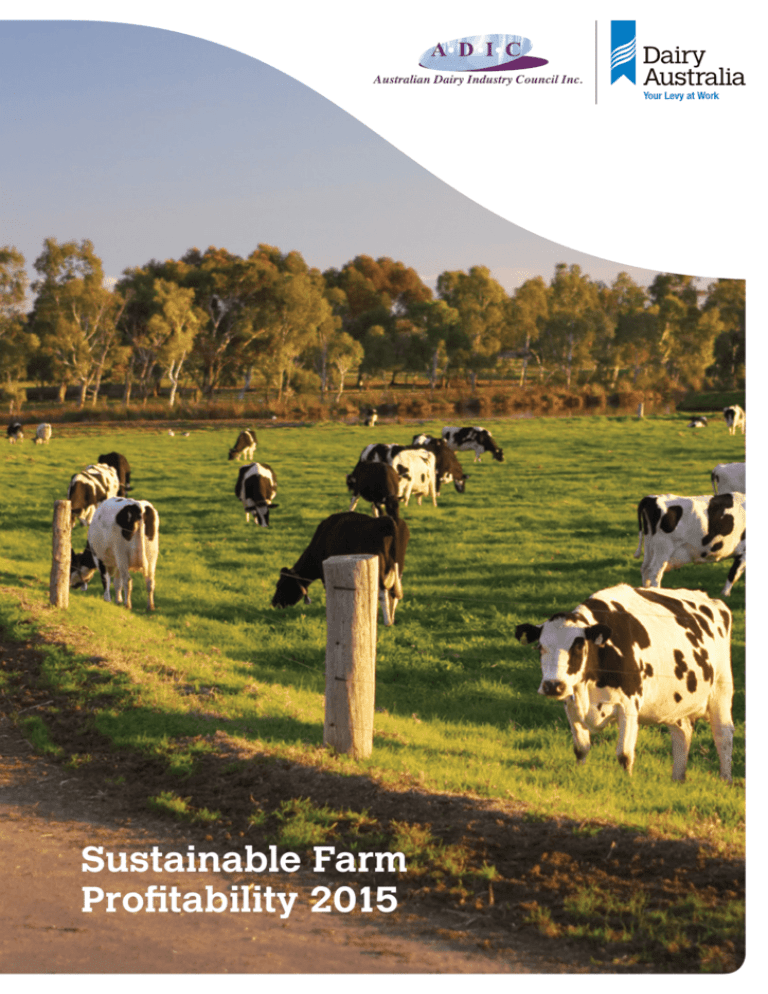Sustainable Farm Management For Long-Term Profitability
With the ever-increasing popularity of sustainable farming methods, it is essential for farmers to consider the profitability of their operations. In 2015, a study was conducted to analyze the sustainable farm profitability, and the results were quite fascinating.

Throughout the research, it was evident that sustainable farming practices contribute to long-term profitability. By adopting environmentally-friendly techniques, farmers reduce costs and enhance productivity while preserving the natural resources. Let's delve into the study further to understand the significance of sustainable farm profitability.
What is Sustainable Farm Profitability?
Sustainable farm profitability refers to the ability of farms to generate income while maintaining ecological balance and minimizing negative impacts on the environment. It involves implementing practices that increase productivity, reduce waste, and conserve resources in the long run.
Ideas For Enhancing Sustainable Farm Profitability:
1. Crop Rotation: By rotating crops, farmers can break pest cycles, reduce soil erosion, and improve soil fertility. This leads to healthier plants and ultimately higher yields.
2. Organic Pest Control: Using organic methods to control pests eliminates the need for harsh chemicals and promotes a healthier ecosystem on the farm. This helps maintain a balance between predator and prey.
3. Efficient Irrigation Systems: Investing in modern irrigation systems helps farmers use water more efficiently, reducing water waste and associated costs.
4. Renewable Energy: Implementing renewable energy sources, such as solar panels or wind turbines, can significantly reduce electricity bills and make farms more energy-independent.
5. Diversification of Income: By diversifying income streams, farmers can reduce risk and increase profitability. This can be achieved through activities such as agri-tourism, selling value-added products, or participating in farmers' markets.
6. Precision Farming: Utilizing technology, such as GPS mapping and sensors, enables farmers to optimize the use of inputs, minimize waste, and maximize yields.
7. Conservation of Habitat: Creating protected areas on the farm and preserving natural habitats can attract beneficial wildlife, which helps control pests and enhances biodiversity.
8. Water Management: Proper water management practices, like rainwater harvesting and efficient drainage systems, reduce runoff and conserve water resources.
9. Soil Conservation: Implementing erosion control measures, such as contour plowing, terracing, and cover cropping, helps preserve soil health and prevent nutrient loss.
10. Integrated Livestock-Crop Systems: Integrating livestock and crop production creates a symbiotic relationship, where animal waste can be used as fertilizer, reducing the need for external inputs.
Recommendations For Increasing Sustainable Farm Profitability:
To further enhance sustainable farm profitability, farmers can consider the following recommendations:
1. Research and Education: Staying updated with the latest agricultural research and attending educational workshops can provide valuable insights into sustainable farming practices.
2. Networking: Building relationships with other farmers, suppliers, and agricultural experts can help exchange knowledge and access valuable resources.
3. Government Support: Collaborating with government agencies and taking advantage of sustainable agriculture incentives and subsidies can provide financial assistance and expert guidance.
4. Market Analysis: Conducting market analysis helps farmers identify demand trends and adjust their crop selection accordingly, maximizing profitability.
5. Monitoring and Evaluation: Regularly monitoring production, costs, and environmental impacts allows farmers to identify areas for improvement and make informed decisions.
Listicle of Best Sustainable Farming Practices:
- Regenerative Agriculture: A holistic approach that aims to restore ecosystems and soil health while maximizing farm productivity.
- No-Till Farming: Reducing soil disturbance by eliminating plowing preserves soil structure, increases water retention, and reduces erosion.
- Agroforestry: Integrating trees with crops and livestock enhances biodiversity, provides shade, and offers additional income through timber or fruit production.
- Aquaponics: Combining aquaculture and hydroponics, it creates a closed-loop system where fish waste fertilizes the plants, and plants filter the water for the fish.
- Biodynamic Farming: An approach that focuses on enhancing the farm's biodiversity by utilizing composting, crop rotation, and natural fertilizers.
- Permaculture: Designing self-sustaining agricultural systems that mimic natural ecosystems, minimizing waste and promoting biodiversity.
- Cover Cropping: Planting cover crops between cash crops helps prevent soil erosion, suppresses weeds, and improves soil fertility.
- Intercropping: Planting different crops together can lead to better space utilization, pest control, and increased overall yield.
- Composting: Recycling organic waste into nutrient-rich compost helps reduce the need for synthetic fertilizers and enhances soil health.
- Managed Grazing: Rotating livestock in pastures prevents overgrazing and allows plants to recover, improving soil health and productivity.
Question & Answer:
Q: Does sustainable farming require significant financial investment?
A: While adopting sustainable farming practices may involve some initial investments, the long-term benefits in terms of greater profitability and resource conservation outweigh the costs.
Q: Can small-scale farmers also practice sustainable farming?
A: Absolutely! Sustainable farming techniques can be implemented on farms of all sizes. In fact, small-scale farmers often have the advantage of flexibility and can adapt quickly to changes in practices.
Q: How does sustainable farming benefit the environment?
A: Sustainable farming practices promote biodiversity, reduce soil erosion, conserve water resources, and minimize the use of synthetic chemicals, thereby creating a healthier ecosystem.
Summary of Sustainable Farm Profitability 2015:
In conclusion, the study conducted in 2015 on sustainable farm profitability reveals the importance of adopting eco-friendly practices in agriculture. By implementing techniques such as crop rotation, organic pest control, efficient irrigation, and renewable energy, farmers can enhance profitability while preserving the environment.
Moreover, recommendations like staying updated with research, networking, accessing government support, conducting market analysis, and monitoring and evaluation can further aid in increasing sustainable farm profitability.
The listicle of best sustainable farming practices showcases several methods that farmers can explore to make their operations more sustainable and profitable in the long run. Finally, the Q&A section addresses common queries related to sustainable farming.
It is crucial for farmers to recognize the significance of sustainable farming and embrace practices that not only benefit their bottom line but also contribute to a more sustainable future for the planet.

Post a Comment for "Sustainable Farm Management For Long-Term Profitability"